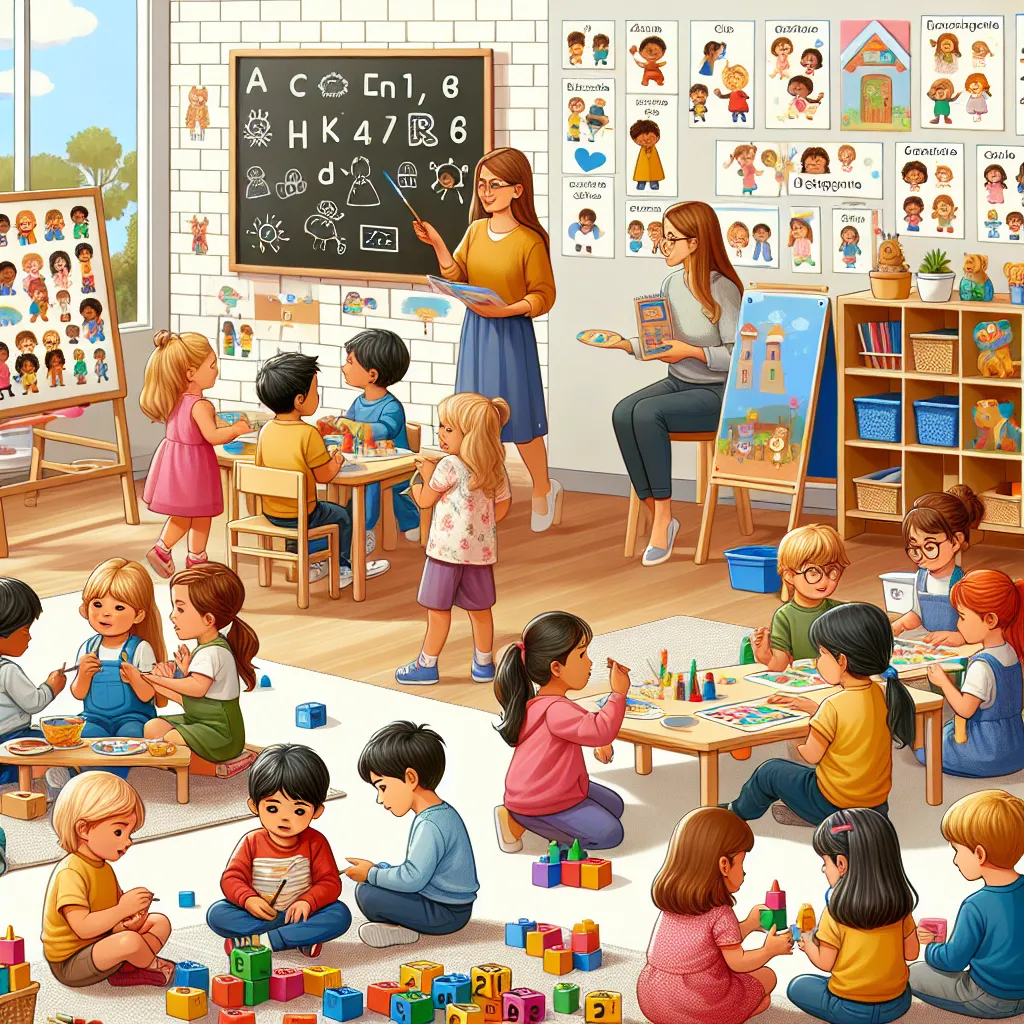Early Childhood Education in Mexico: Nurturing the Foundations of Future Generations
Early Childhood Education in Mexico: Nurturing the Foundations of Future Generations
Introduction:
Early childhood education plays a crucial role in shaping the future of a nation. In Mexico, as in many other countries, the government and educational institutions recognize the significance of investing in the early development of children. Early childhood education in Mexico focuses on providing a nurturing and stimulating environment that fosters holistic growth and lays the foundations for lifelong learning.
The Importance of Early Childhood Education:
Early childhood education encompasses the years from birth to around age 8, a period when a child’s brain is rapidly developing and highly receptive to learning. Research has consistently shown that high-quality early childhood education has profound short-term and long-term benefits for children, their families, and society as a whole.
Early childhood education promotes cognitive, social, emotional, and physical development, which are all essential for a child’s overall well-being. It helps children build a strong foundation for future academic success, enhances their problem-solving and critical thinking skills, and cultivates their creativity and curiosity. Moreover, it instills important values such as empathy, respect, and cooperation, fostering positive social interactions and relationships.
Early childhood education also plays a vital role in narrowing the achievement gap among children from different socioeconomic backgrounds. By providing equal access to quality education during the early years, it helps level the playing field and creates a more equitable society.
The Current Landscape of Early Childhood Education in Mexico:
In Mexico, the government has recognized the significance of early childhood education and has taken several initiatives to improve its accessibility and quality. The National Early Childhood Education Program (Programa Nacional de Educación Inicial) was established to provide comprehensive educational services to children aged 0-3 years, while the preschool program caters to children aged 3-6 years.
However, despite these efforts, there are still challenges to overcome. One of the major issues is the lack of access to early childhood education, particularly among marginalized communities and rural areas. Limited resources and infrastructure hinder the expansion of educational services, leaving many children without the opportunity to benefit from early childhood education.
Another challenge is the need for well-trained educators who can provide high-quality early childhood education. Although the government has implemented training programs for educators, there is still a shortage of qualified professionals. Additionally, the low salaries of early childhood educators often discourage talented individuals from pursuing this career path, leading to a further shortage of skilled teachers.
Initiatives and Innovations in Early Childhood Education:
Despite the challenges, various initiatives and innovations have emerged to enhance early childhood education in Mexico. One such initiative is the creation of community-based early childhood education centers (Centros de Atención Infantil Comunitarios) that provide educational services to children in marginalized areas. These centers offer a safe and stimulating environment, nutritious meals, and support for parents, aiming to bridge the education gap.

Additionally, technology is being leveraged to enhance early childhood education. Interactive educational apps, online resources, and virtual learning platforms are being developed to supplement traditional teaching methods. These tools not only engage children but also provide opportunities for personalized learning, making education more accessible and inclusive.
Furthermore, collaborations between government, non-profit organizations, and private sectors have been instrumental in improving early childhood education. These partnerships help mobilize resources, share best practices, and promote innovation in the field.
The Way Forward:
As Mexico moves forward, it is essential to prioritize early childhood education and address the existing challenges. Here are some key areas that require attention:
1. Increasing Accessibility:
Efforts should be made to expand early childhood education services, particularly in underserved areas. Investing in infrastructure, establishing more community-based centers, and implementing mobile early childhood education units can help reach more children.
2. Enhancing Teacher Training and Professional Development:
Improving the quality of early childhood education relies on well-trained and motivated educators. Providing comprehensive training programs, offering competitive salaries, and creating opportunities for professional development can attract and retain skilled teachers.
3. Strengthening Parental Involvement:
Engaging parents and caregivers in their child’s education is crucial. Promoting parental involvement through workshops, support groups, and educational resources can empower parents to become active partners in their child’s learning journey.
4. Integrating Technology:
Harnessing the power of technology can enhance early childhood education. Integrating interactive tools, online resources, and virtual learning platforms can supplement traditional teaching methods and create a more engaging and personalized learning experience.
5. Continuous Evaluation and Improvement:
Regular assessment and evaluation of early childhood education programs are essential to ensure their effectiveness. Feedback from educators, parents, and children should be sought to identify areas for improvement and implement necessary changes.
Conclusion:
Early childhood education in Mexico is a critical investment in the future of the nation. By providing quality education and nurturing environments during the early years, Mexico can lay the foundations for a prosperous and equitable society. Addressing the challenges and embracing innovative approaches will help ensure that every child in Mexico has access to high-quality early childhood education, setting them on a path towards lifelong learning and success.
